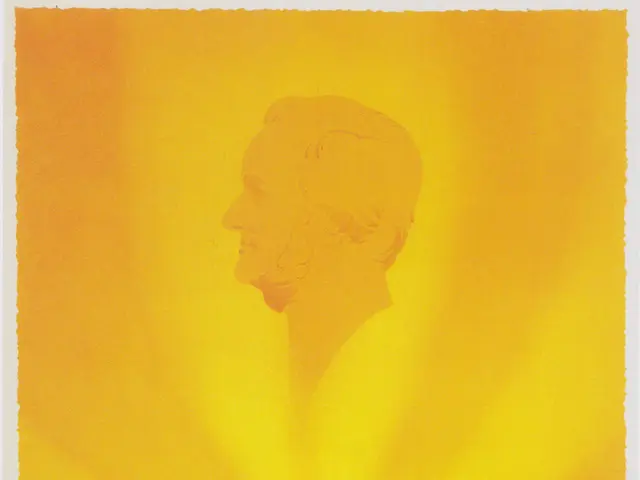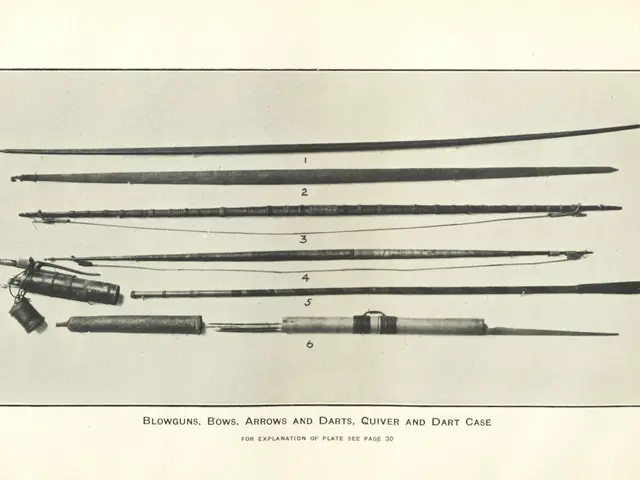Cracking the Code: Understanding Slang from Favorite Film and TV Releases
Get ready to dive into the wild world of slang and decipher the cryptic words and phrases that pepper your favorite TV shows and movies! From street slang to slang unique to a show's genre or subculture, understanding these informal language patterns can amplify your viewing experience and provide fascinating insights into characters, plot dynamics, and cultural commentary.
Slang serves as a litmus test for characterization and authenticity, allowing writers to effectively portray a specific time, place, and voice. To illustrate, crime dramas like "The Wire" and "Sons of Anarchy" employ slang from their respective criminal underworlds, while science fiction and fantasy series like "Game of Thrones" and "Star Trek" create new languages and jargon to breathe life into their fantastical realms.
Cracking the Code: Methods for Decoding Slang
Familiarize Yourself with the Basics
Before diving headfirst into decoding slang, take the time to learn the basic components of slang. Refresh your memory on terms such as colloquialisms, idioms, neologisms, and jargon, as these patterns will be prevalent throughout your slang-decoding journey.
Online Resources and Language Learning Apps
The internet offers a plethora of resources designed to educate and inform. Start by researching slang terms using tools like Urban Dictionary, a crowd-sourced online dictionary, or Merriam-Webster's slang dictionary[1]. Additionally, check out various language learning apps and websites, like Duolingo and Babbel, which can offer valuable insights into contemporary slang trends.
Piece Together Contextual Clues
Slang often thrives on context, so pay close attention to the word's surrounding dialogue, scene, and character dynamics when trying to decipher a new term. Look out for visual and auditory signals, such as gestures, facial expressions, and tone of voice, that can help clarify a slang word's intended meaning[2].
Utilize Subtitles and Script Access
Guarantee your understanding by enabling subtitles when watching TV shows or movies. This allows you to see the slang written out, making it easier to research its definition and spelling[3]. Additionally, accessing full scripts through websites like Springfield! Springfield! provides in-depth insights into a show's linguistic elements[4].
Stalk (Not Really) Your Favorites Online
Follow respectable entertainment news sources, like Entertainment Weekly or Vulture, for coverage on upcoming slang trends in both television and film[5]. Social media, forums, and fan communities often feature conversations and analyses on slang within a particular series or genre. Staying informed with up-to-date content keeps your language skills sharp and ensures that you have the best possible understanding of a show's lexicon.
Slang Decoded: Case Studies
Television
"Stranger Things"
Decoding slang in this hit Netflix series involves familiarizing yourself with 1980s pop culture references, science fiction jargon, and casual slang that reflects the characters' youth and their small-town upbringing[6].
"Breaking Bad"
This crime drama uses a plethora of slang terms specific to the drug world. Get to know phrases like "meth head," "cook," "dope," and "street value" to capture the dark, gritty world of the series[7].
Movies
"The Big Lebowski"
Known for its quirky sense of humor, this Coen Brothers classic features numerous slang terms that add to the film's distinct, memorable dialogue[8].
"Pulp Fiction"
An iconic movie with a rich assortment of slang, "Pulp Fiction" incorporates street slang, neologisms, and general colloquialisms into its fast-paced, energetic dialogue[9].
Taking It to the Next Level
Once you've mastered the art of decoding slang, expand your own vernacular by adapting phrases and terms that appeal to you. Incorporate elements of slang into your everyday speech, and watch as conversations with friends and family transform into a smorgasbord of humor, camaraderie, and heightened engagement.
After all, the joy of slang lies in its ability to forge relationships, enhance personal identity, and bridge cultural boundaries. By decoding the secrets of your favorite TV shows and movies, you become an integral part of the conversation, truly immersing yourself in the atmosphere that makes each series and film unique and enriching.
References
[1] Urban Dictionary: https://www.urbandictionary.com/
[2] Merriam-Webster's Slang Dictionary: https://www.merriam-webster.com/dictionary/slang
[3] Duolingo: https://www.duolingo.com/
[4] Springfield! Springfield!: https://springfield.wmflabs.org/
[5] Entertainment Weekly: https://ew.com/
[6] Vulture (Based on "Stranger Things" coverage): https://www.vulture.com/
[7] IHateEverything'sStupid Know Your Slang (Based on "Breaking Bad" coverage): https://yousuckatchess.wordpress.com/youseemtobelikebreakingbad/know-your-slang/
[8] "The Big Lebowski" Slanguage Primer: https://www.nbcnews.com/id/wbna15868827
[9] Pop Culture Detective: "Pulp Fiction" Analysis: https://youtu.be/iL-9SoND6xQ
- Dive into the realm of cooking, lifestyle, fashion-and-beauty, food-and-drink, and entertainment by exploring a variety of recipes, books, and online resources dedicated to these topics.
- To improve your understanding of slang in pop-culture, study its connection with daily vernacular, such as colloquialisms, idioms, neologisms, and jargon, found in books and language learning apps.
- When engaging with film and television, take advantage of tools like subtitles, scripts, and online resources to help decode the slang used, making your viewing experience more enjoyable and educational.
- By mastering the art of decoding slang, not only can you increase your entertainment literacy, but you can also enrich your own speech and engage in more meaningful conversations with others, fostering relationships and bridging cultural boundaries.








